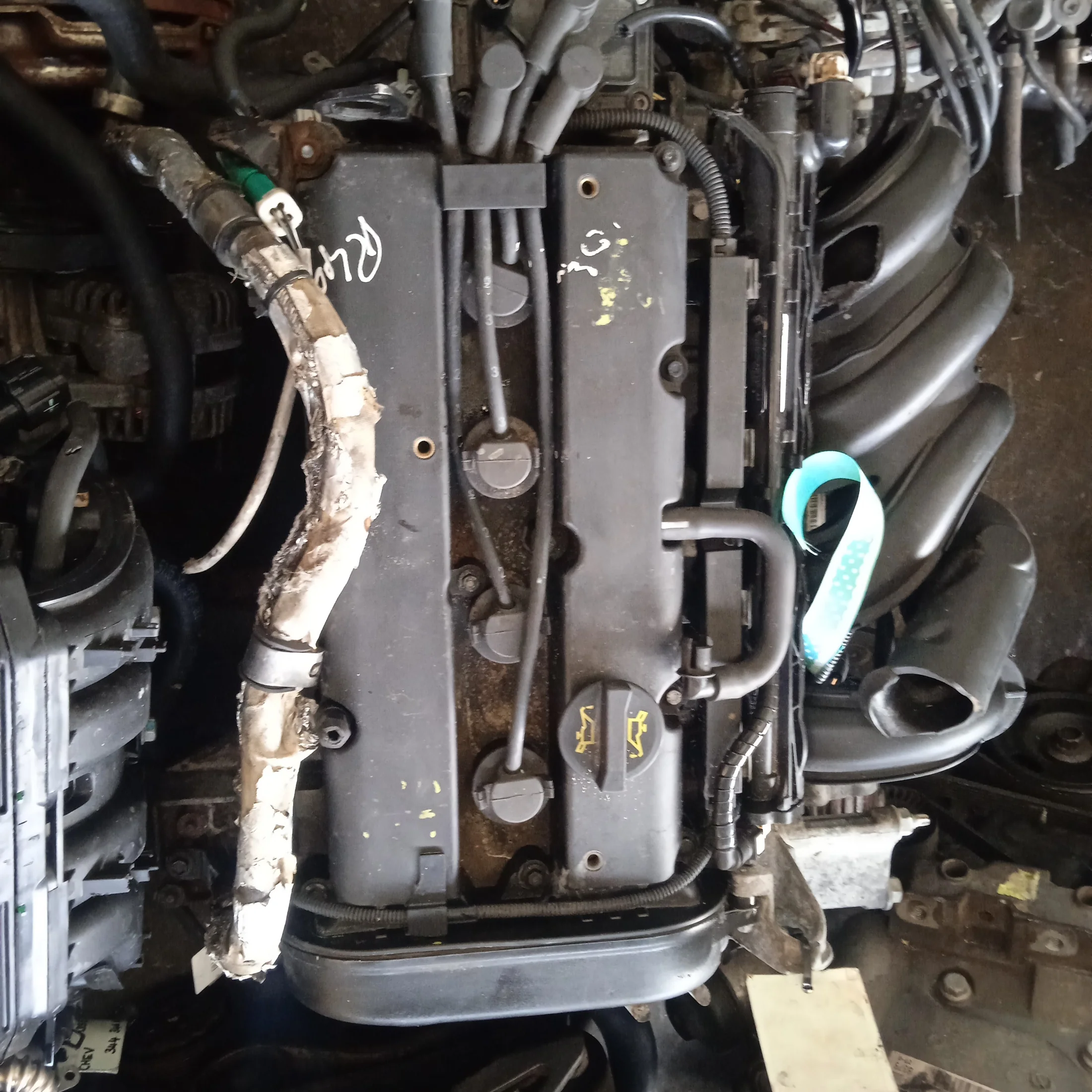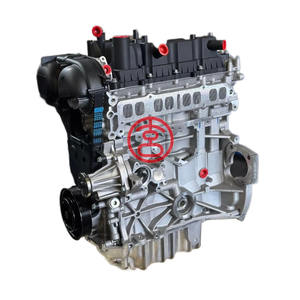The Future of Engines: Advancements Driving Lasting Power Solutions
As the automotive market browses the imperative transition towards sustainability, the future of engines is increasingly specified by groundbreaking innovations. Electric engine developments, along with promising growths in hydrogen gas cells and biofuels, are improving the landscape of power solutions. The appearance of hybrid systems even more complicates this development, providing both difficulties and chances to minimize exhausts efficiently. Coupled with the integration of expert system in engine layout, these technical strides elevate essential questions regarding their long-lasting practicality and impact on typical standards. What might this suggest for the sector and consumers alike?
Electric Engine Advancement
The advancement of electric engine growths represents a crucial change in the automotive and aerospace industries, driven by the urgent requirement for lasting choices to fossil gas. This change is defined by substantial improvements in battery modern technology, power electronic devices, and electric motor layout, which collectively boost the performance and performance of electrical engines.
Current technologies have actually led to the development of lighter, more energy-dense batteries, such as lithium-silicon and solid-state batteries, which guarantee longer ranges and shorter charging times. In addition, renovations in electric motor effectiveness, such as using long-term magnets and progressed cooling down systems, enable electrical engines to operate successfully under differing problems. These enhancements not only boost vehicle efficiency but likewise add to a reduction in total energy usage.
In addition, the integration of innovative software application algorithms has actually maximized energy administration in electrical lorries, enabling regenerative stopping and anticipating billing strategies. As makers increasingly embrace electric propulsion, the aerospace and vehicle fields are witnessing a paradigm shift in the direction of greener technologies. This evolution not just fulfills governing needs yet additionally straightens with customer choices for eco-friendly transport remedies, solidifying electric engines as a foundation of future lasting mobility.
Developments in Biofuels
As the aerospace and auto industries increasingly focus on lasting power sources, innovations in biofuels arise as a corresponding option to electrical engines. Biofuels, originated from natural materials such as crops, waste, and algae, provide an ingenious opportunity for minimizing greenhouse gas discharges and dependence on fossil gas.
Recent study has concentrated on improving the efficiency and sustainability of biofuel production. Second-generation biofuels use non-food feedstocks, reducing competitors with food supply and minimizing ecological effect. Advancements in artificial biology have allowed the design of microorganisms to create biofuels much more successfully, leading to greater yields and lower manufacturing costs.
Furthermore, the development of drop-in biofuels enables smooth combination right into existing infrastructure, allowing a smoother change for industries commonly based on fossil gas. ford fiesta engine. These gas can be used in present engines without modifications, promoting their fostering across various sectors
Investments in biofuel technology, together with encouraging policies, are crucial to drive technology and scalability. As the global neighborhood looks for to deal with environment adjustment, biofuels supply a pragmatic, prompt remedy that straightens with the overarching objective of sustainability in transport and air travel.
Hydrogen Gas Cell Innovation
An expanding variety of firms and scientists are discovering hydrogen fuel cell modern technology as a sensible alternative to conventional source of power in transport and power systems. This modern technology transforms chemical power from hydrogen into electrical power through an electrochemical reaction, with water as the only by-product, making it an eco pleasant choice.
The core of hydrogen fuel cells is the fuel cell pile, where hydrogen molecules are split right into electrons and protons. The flow of electrons generates power, while protons relocate via a membrane to incorporate with oxygen from the air, creating water. This process leads to high performance and reduced emissions, placing hydrogen fuel cells as an essential gamer in the shift to sustainable power.
Substantial advancements have actually been made in enhancing the sturdiness and performance of fuel cells, along with minimizing costs through innovative production methods. Additionally, the growth of hydrogen manufacturing techniques, such as electrolysis powered by renewable resource sources, enhances the sustainability of the overall system. As infrastructure for hydrogen refueling expands and manufacturing techniques come to be a lot more effective, hydrogen fuel cell modern technology holds excellent promise for decarbonizing various fields, including sturdy Read Full Article transportation and stationary power generation.
Hybrid Solutions and Their Influence
Crossbreed systems represent a significant development in lasting engine innovation, combining standard interior combustion engines with electric propulsion to enhance power effectiveness and decrease emissions (ford fiesta engine). This dual approach allows vehicles to make use of both source of power, enabling greater adaptability in power intake and reducing dependence on fossil gas

In addition to environmental benefits, crossbreed systems supply consumers a viable transition towards completely electric lorries. They reduce range anxiousness by combining the ease of gas with the advantages of visit the website electric propulsion, making them an attractive option for a larger target market.
The Role of AI in Engine Layout
Leveraging innovative formulas and machine knowing methods, the automobile industry is increasingly integrating artificial intelligence (AI) right into engine style procedures. AI boosts the effectiveness and efficiency of design by evaluating huge datasets to identify optimal arrangements and efficiency specifications. This ability allows designers to replicate various operating conditions and predict engine actions under several scenarios, considerably decreasing the time and expense related to conventional prototyping techniques.
Moreover, AI facilitates the growth of sophisticated materials and burning processes customized for sustainability. By optimizing fuel performance and reducing exhausts, AI-driven styles straighten with international efforts intended at decreasing the carbon impact of vehicle engines. Maker learning algorithms can additionally predict upkeep needs, causing improved dependability and long life of engine components.
In Addition, AI contributes in the assimilation of electrification innovations, such as crossbreed systems, where it can enhance battery monitoring and energy healing procedures. As the industry moves in the direction of even more sustainable power solutions, the role of AI in engine layout comes to be increasingly crucial, driving technology and enhancing the performance of future engines. Inevitably, the cooperation in between AI and engine style declares a brand-new age of smarter, cleaner, and extra efficient vehicle modern technologies.

Conclusion
In verdict, the future of engines is being shaped by a merging of cutting-edge technologies that prioritize sustainability. Electric engine improvements, biofuel developments, hydrogen gas cells, and crossbreed systems jointly add to a significant reduction in discharges and environmental effect. Additionally, the combination of synthetic knowledge in engine layout boosts performance and efficiency. These transformative services highlight a commitment to producing a cleaner, a lot more sustainable auto landscape, ultimately benefiting both culture and the setting.
Electric engine innovations, along with encouraging developments in hydrogen gas cells and biofuels, are reshaping the landscape of power services. Additionally, improvements in electric motor performance, such as the usage of long-term magnets and progressed cooling systems, allow electric engines to run successfully under varying conditions. By optimizing gas effectiveness and lessening discharges, AI-driven designs align with international efforts intended at decreasing the carbon footprint of automotive engines. As the sector moves click resources in the direction of more sustainable power remedies, the function of AI in engine layout ends up being significantly essential, driving innovation and boosting the performance of future engines. Electric engine improvements, biofuel developments, hydrogen fuel cells, and hybrid systems collectively contribute to a significant decrease in exhausts and environmental effect.